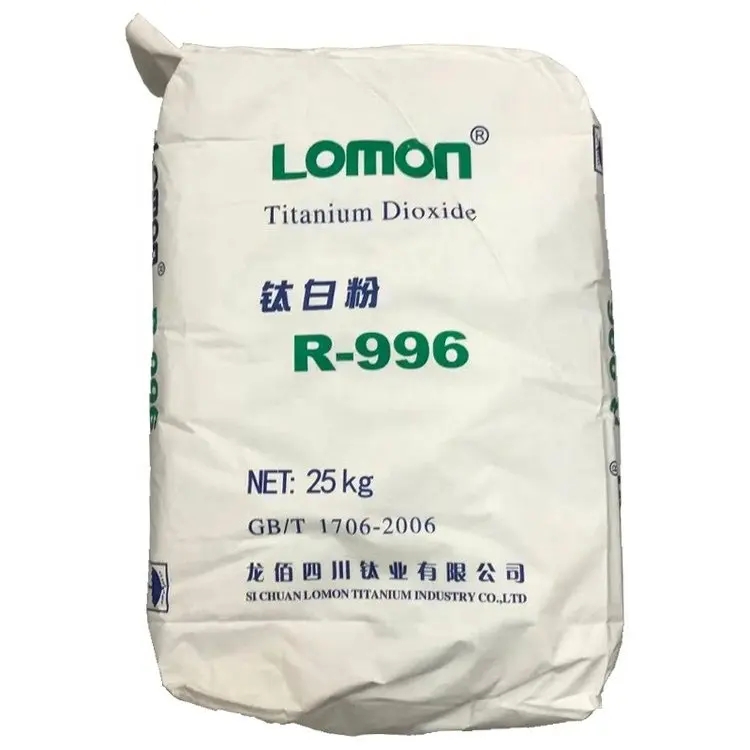
Nov . 07, 2024 14:17 Back to list
TiO2 Water Treatment Solutions from Leading Suppliers for Enhanced Purification Technologies
The Role of TiO2 in Water Treatment An Overview of Suppliers and Technologies
Water treatment is a critical aspect of environmental management and public health, especially in an age where water scarcity and contamination are pressing issues. Among the various technologies that have emerged for effective water treatment, titanium dioxide (TiO2) has gained significant attention due to its unique photocatalytic properties. This article explores the role of TiO2 in water treatment, its mechanisms, applications, and an overview of suppliers in the market.
Understanding Titanium Dioxide
Titanium dioxide is a widely used photocatalyst that can harness sunlight to facilitate chemical reactions. It is a semiconductor with a high refractive index and photocatalytic efficiency, making it suitable for diverse applications, particularly in environmental remediation. TiO2 exists primarily in three crystalline forms anatase, rutile, and brookite, with anatase being the most effective for photocatalytic degradation processes.
Photocatalysis Mechanism of Action
The photocatalytic process involves the absorption of UV light by TiO2, generating electron-hole pairs. These free electrons and holes can participate in redox reactions with water and oxygen, leading to the formation of reactive oxygen species (ROS) such as hydroxyl radicals (•OH) and superoxide anions (O2•−). These ROS are highly effective in breaking down organic pollutants, bacteria, and viruses in water.
When TiO2 is suspended in water or coated on surfaces, it can degrade various contaminants, including pesticides, pharmaceuticals, heavy metals, and pathogens. The efficiency of the degradation process is influenced by factors such as the amount of TiO2 used, the light source, and the nature of the contaminants present.
Applications in Water Treatment
The application of TiO2 in water treatment is multifaceted
1. Wastewater Treatment TiO2 photocatalysis is used in the treatment of industrial wastewater containing toxic organic compounds. The process not only degrades contaminants but also reduces chemical oxygen demand (COD), thereby improving water quality.
2. Drinking Water Purification TiO2 can effectively eliminate harmful microorganisms from drinking water sources. Studies have demonstrated its capability to inactivate bacteria and viruses, ensuring the safety and quality of drinking water.
tio2 water treatment supplier

3. Destruction of Persistent Pollutants Many pollutants, such as endocrine-disrupting chemicals, are resistant to conventional treatment methods. TiO2's ability to generate ROS allows it to break down these persistent pollutants effectively.
4. Advanced Oxidation Processes (AOPs) When combined with other oxidants like hydrogen peroxide or ozone, TiO2 enhances the degradation of complex organic compounds, making it a valuable component in AOPs.
The Market for TiO2 Water Treatment Suppliers
As the demand for innovative water treatment solutions grows, numerous suppliers have emerged, offering TiO2-based products and technologies. Here are some key players in the market
1. Evonik Industries A global leader in specialty chemicals, Evonik supplies high-purity TiO2 products specifically designed for photocatalytic applications. Their expertise in materials science enables the development of tailored solutions for various water treatment challenges.
2. Mitsubishi Materials Corporation This company has pioneered the use of TiO2 in water purification systems. Their products are widely utilized in industrial and municipal water treatment facilities across the globe.
3. PhotoCat Specializing in photocatalytic technology, PhotoCat offers a range of TiO2-based solutions, including coatings for water treatment systems. Their innovative approaches emphasize sustainability and efficiency, making them a preferred supplier among environmental regulators.
4. Huntsman Corporation Known for its diverse portfolio of chemical products, Huntsman provides TiO2 for various applications, including water treatment. Their focus on research and development ensures the continuous improvement of their offerings.
5. Titanium Dioxide Producers and Distributors There are also numerous niche suppliers who focus solely on manufacturing and distributing TiO2 for environmental applications. These companies often cater to local markets and provide customized solutions for specific water treatment needs.
Conclusion
The application of titanium dioxide in water treatment presents a promising avenue for tackling water pollution and ensuring access to clean water. Its unique photocatalytic properties make it a versatile tool in various water treatment contexts, from industrial wastewater management to drinking water purification. With a growing number of suppliers and continuous advancements in technology, TiO2-based solutions are poised to play an increasingly important role in the future of water treatment. As we grapple with global water challenges, harnessing the potential of innovative materials like TiO2 will be essential for sustainable water management practices.
-
China Lithopone in China Supplier – High Quality Lithopone ZnS 30% Powder for Wholesale
NewsJun.10,2025
-
Top China Titanium Dioxide Company – Premium TiO2 Powder Supplier & Manufacturer
NewsJun.10,2025
-
Fast Shipping 99% Pure TiO2 Powder CAS 13463-67-7 Bulk Wholesale
NewsJun.10,2025
-
Top China Titanium Dioxide Manufacturers High-Purity R996 & Anatase
NewsJun.10,2025
-
Lithopone MSDS Factories - Production & Quotes
NewsJun.10,2025
-
High-Quality Titanium Dioxide in Water Suppliers - China Expertise 60
NewsJun.09,2025
